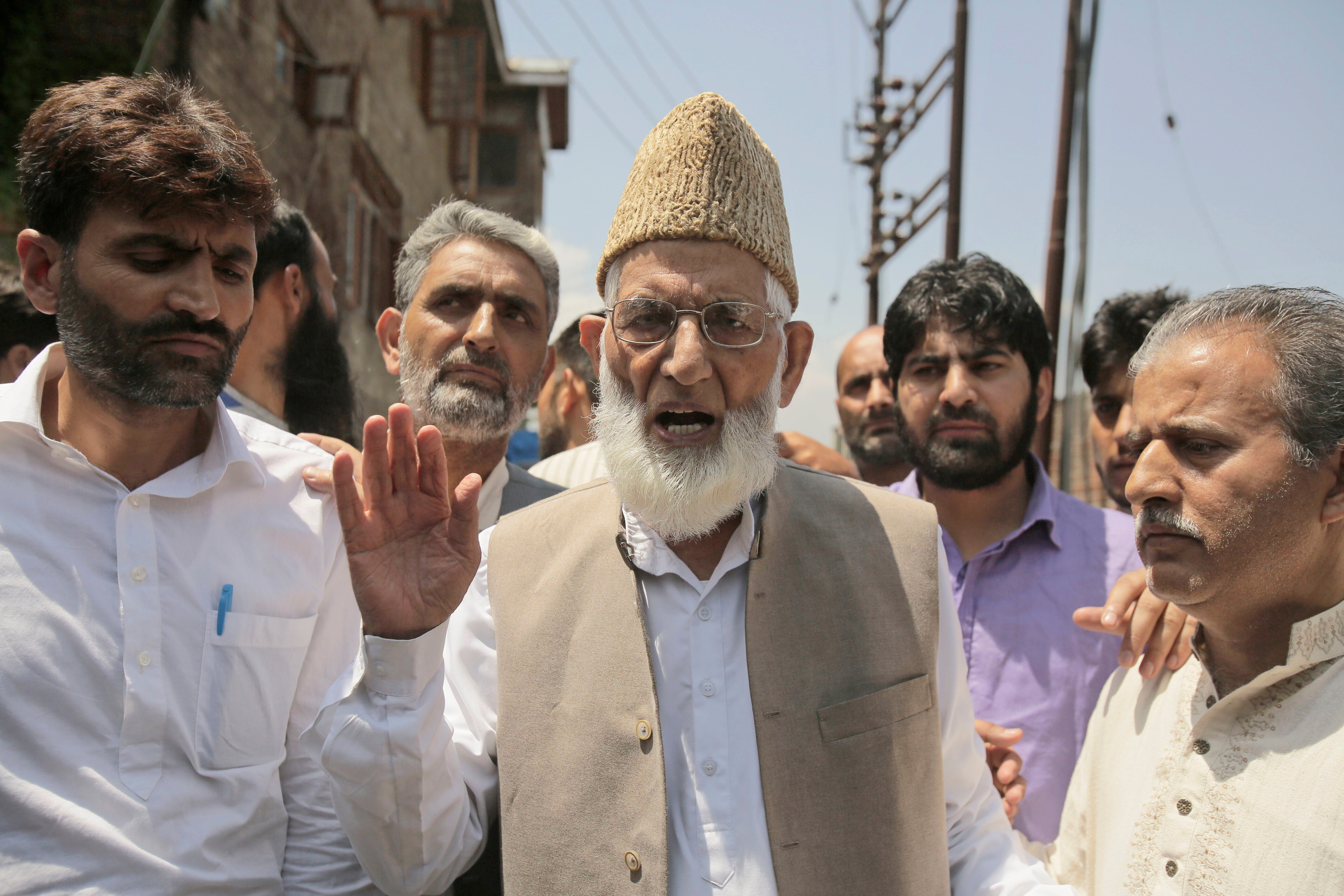Security heightened in Kashmir after separatist leader Syed Ali Shah Geelani dies at 92
Kashmir’s political patriarch was buried near his house amid presence of heavy security

Your support helps us to tell the story
From reproductive rights to climate change to Big Tech, The Independent is on the ground when the story is developing. Whether it's investigating the financials of Elon Musk's pro-Trump PAC or producing our latest documentary, 'The A Word', which shines a light on the American women fighting for reproductive rights, we know how important it is to parse out the facts from the messaging.
At such a critical moment in US history, we need reporters on the ground. Your donation allows us to keep sending journalists to speak to both sides of the story.
The Independent is trusted by Americans across the entire political spectrum. And unlike many other quality news outlets, we choose not to lock Americans out of our reporting and analysis with paywalls. We believe quality journalism should be available to everyone, paid for by those who can afford it.
Your support makes all the difference.Pro-Pakistan Kashmiri separatist leader Syed Ali Shah Geelani passed away at the age of 92 in the Indian federal territory of Jammu and Kashmir on Wednesday due to age-related ailments.
Geelani, the face of Jammu and Kashmir's movement against the Indian rule for over three decades, had retired from politics last year. He was placed under house arrest for almost 12 years for leading anti-India protests.
Following his death, fresh restrictions were imposed, mobile phone and internet connections were snapped across the union territory — a measure that is often undertaken by the administration to prevent potential violence. All roads leading towards his Hyderpora residence were sealed off and guarded with heavy deployment of security forces in riot gears.
Geelani was buried at a graveyard near his house before dawn on Thursday in presence of only his close relatives and neighbours. “They snatched his body and forcibly buried him. Nobody from the family was present for his burial. We tried to resist but they overpowered us and even scuffled with women,” his son Naseem Geelani told the Associated Press.
Tributes poured in from Kashmiri leaders and Pakistan-based politicians who mourned Geelani's death.
Mehbooba Mufti, the former chief minister of the erstwhile state, tweeted that she was "saddened" by his demise. She wrote: "We may not have agreed on most things but I respect him for his steadfastness and standing by his beliefs. May Allah Ta'aala grant him jannat and condolences to his family and well-wisher."
Pakistan's prime minister Imran Khan declared Thursday as a day of official mourning for the "freedom fighter." He wrote: "I am deeply saddened to hear of the demise of Mujahid-e-Kashmir Syed Ali Gilani, who has been fighting for his people and their right to self-determination throughout his life. He was captured and tortured by the occupying Indian state but remained steadfast".
In 2020, he was awarded the Nishan-i-Pakistan, the highest civilian award that Pakistan gave to the likes of Nelson Mandela.
The Himalayan region of Kashmir is divided between India and Pakistan and is claimed by both countries since the partition in 1947.
The patriarch of Kashmir's politics served as a legislator for over 15 years, representing Jamaat-i-Islami, an Islamic political party in Kashmir, which was banned by the Indian government in 2019. Geelani was put under house arrest on 5 august 2019 after the prime minister Narendra Modi-led government stripped Jammu and Kashmir of its quasi-autonomous status and bifurcated the state into two federal territories.
Geelani led a faction of the hardline umbrella group of over 20 separatist parties — All Parties Hurriyat Conference — but walked out of it after 27 years of association in 2020 citing "conspiracy against his leadership."
Join our commenting forum
Join thought-provoking conversations, follow other Independent readers and see their replies
Comments